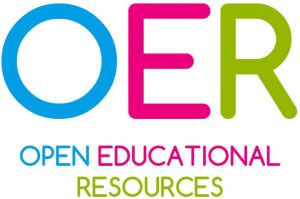
To figure out the differences between online educational content and openly license educational content, we must know the definition of online education and openly license.
Online education is the sharing and exchange of personal ideas, knowledge, and creation by using internet technology to the global. People can access through computers and mobile devices, but not the traditional face to face teaching or textbook. Online educational contents are the materials being shared and exchanged for teaching online. They could be in many forms, like audios, videos, contexts or even images. It is a new and efficient method compares to traditional education.
Openly license is giving permission that allows the public to use this material under license. With open license, you can use the resource for free in any way you like. License is a part of the copyright system all around the world, it works in many companies, organizations, and governments. For example, when an author needs to use a character or texts from another author. He can negotiate with the other author and get the license, but of course, it takes patience, time and money.
Therefore, different from online educational resources, open-licensed educational resources are given the permission of free to use instead of posting them online. They are teaching, learning and researching resources that released under intellectual property license that allow free use by others. Different from online educational resources, they can be more than digital materials like videos, images, music. Lots of content like textbooks, tools, and techniques that use to learn and research are included as well.
A good example of an open educational resource is Wikipedia, nearly all of the material and resources on Wikipedia are openly licensed. Here is a link about linear regression: https://simple.wikipedia.org/wiki/Linear_regression (open educational resource)
Overall, I found open educational resources are quite useful. First, with the permission of free use, people can exchange and share this knowledge, or even remix/rewrite the resources with other licensed resources to create new work in a very easy way. Second, the license gives proper attribution to the original creator, it is a lot easier to do compares to other methods under the copyright system. Third, if you are trying to use the knowledge created someone you don’t know, or you are not able to reach out to the original author to get permission. Choosing an openly licensed resource is way easier to do because it is unnecessary to deal with the author.
Personally, I would use open educational resources for doing projects, create works. Since I am still a student, open resources are quite useful and easy for me when I need to mix some works. Especially when I want to use the knowledge which the original author is aboard, it would be great if I can figure out if the resource is opened. That would save plenty of time.